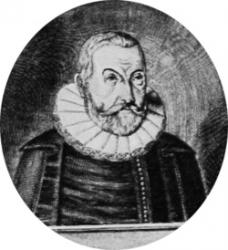Planning worship?
Check out our sister site, ZeteoSearch.org,
for 20+ additional resources related to your search.
- |
User Links
Search Results
[When to the Temple Mary went]
Appears in 1 hymnal Composer and/or Arranger: Johann Eccard Used With Text: When to the Temple Mary went
[When to the Temple Mary went]
When to the Temple Mary went
Author: Rev. J. Troutbeck Hymnal: The Church Anthem Book #98 (1933) Languages: English Tune Title: [When to the Temple Mary went]
When to the Temple Mary went
When to the temple Mary went
Author: John Troutbeck Hymnal: The Green Hill #d29 (1938)
When to the temple Mary went
J. Troutbeck
1832 - 1899 Author of "When to the temple Mary went" Troutbeck, John, D.D., son. of George Troutbeck, of Dacre, Cumberland, b. Nov. 12, 1832, and educated at Rugby and Univ. College, Oxford, B.A. 1856, M.A. 1858, and D.D. by Abp. of Cant. 1883. Ordained in 1855. He held several appointments, the most important being Chaplain and Priest in Ordinary to the Queen, Minor Canon of Westminster, 1869, and Sec. to the N. Test. Revision Company, 1870-1881. He died Oct. 11, 1899. He made a few translations from the German, but is best known through his Manchester Psalter and Chant Book, 1867, and his Catholic Paragraph Psalter, 1894. He also compiled the Westminster Abbey Hymn Book, 1883.
--John Julian, Dictionary of Hymnology, New Supplement (1907)
J. Troutbeck
Johann Eccard

1553 - 1611 Composer of "[When to the Temple Mary went]" in The Church Anthem Book Johannes Eccard (1553–1611) was a German composer and kapellmeister. He was an early principal conductor at the Berlin court chapel.
Eccard was born at Mühlhausen, in present-day Thuringia, Germany. At the age of eighteen he went to Munich, where he became the pupil of Orlando Lasso. In his company, Eccard is said to have visited Paris, but in 1574, he was again at Mühlhausen, where he resided for four years. There he, together with Johann von Burgk, edited his first master, a collection of sacred songs, called Crepundia sacra Helmboldi (1577). Soon afterwards he obtained an appointment as musician in the house of Jacob Fugger, the Augsburg banker.
In 1583 he became assistant conductor, and in 1599 conductor at Königsberg to Georg Friedrich, Margrave of Brandenburg-Anspach, the administrator of the Duchy of Prussia. In 1608 he was called by Joachim Frederick, Elector of Brandenburg as principal conductor in Berlin, but this post he held only for three years, owing to his death at Königsberg in 1611.
Eccard's works consist exclusively of vocal compositions, such as songs, sacred cantatas and chorales for four or five, and sometimes for seven, eight, or even nine voices. Their polyphonic structure is a marvel of art and still garners the admiration of musicians. At the same time his works are instinct with a spirit of true religious feeling. His setting of Martin Luther's words "Ein feste Burg ist unser Gott" (A Mighty Fortress Is Our God) is still regarded by the Germans as their representative national hymn.
Eccard and his school are inseparably connected with the history of the Protestant Reformation. Of Eccard's songs a great many collections are extant such as those published in Der Evangelische Kirchengesang (1843) by Baron Karl Georg August Vivigens von Winterfeld.
--en.wikipedia.org/wiki/
Johann Eccard


 My Starred Hymns
My Starred Hymns

